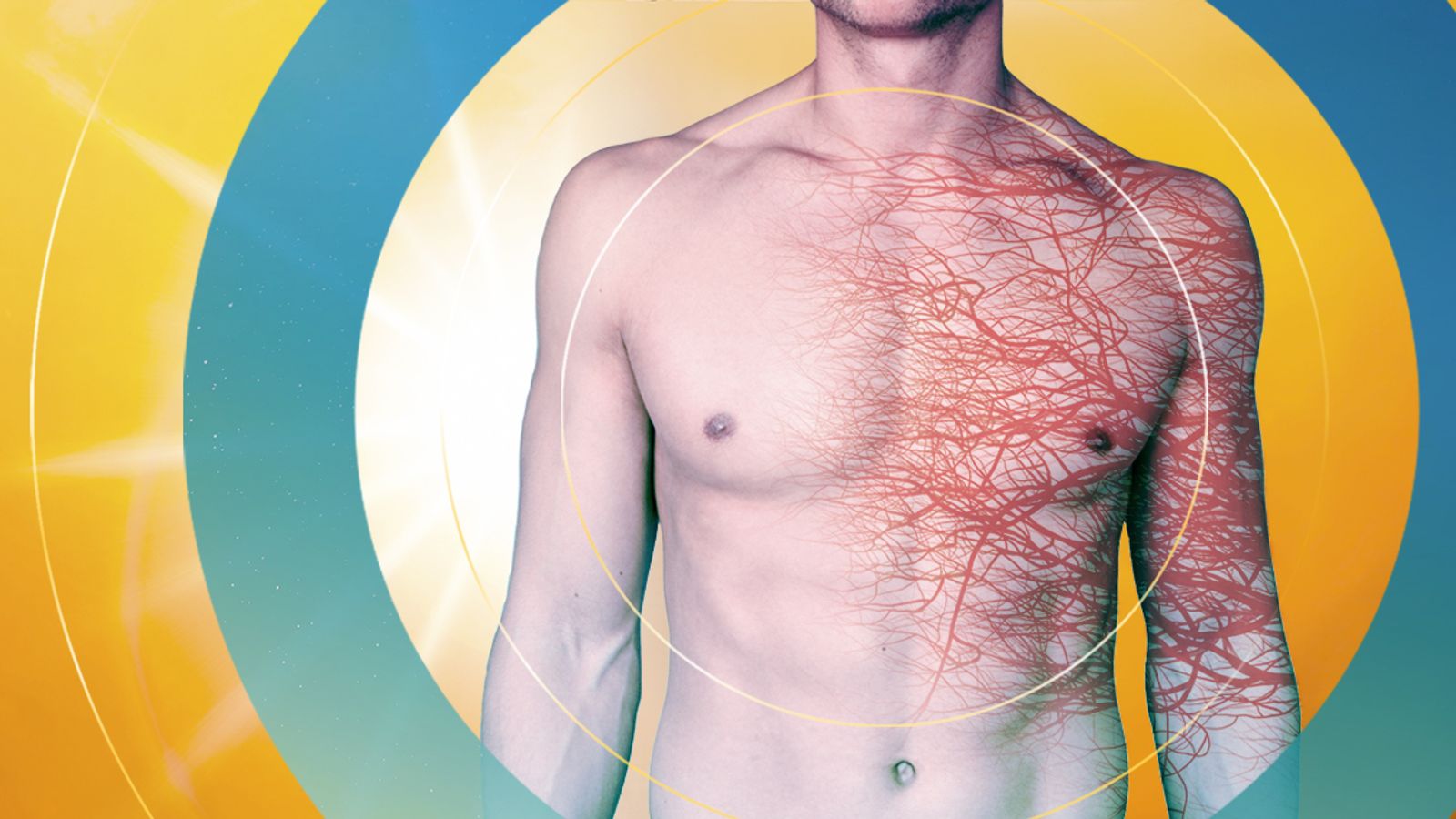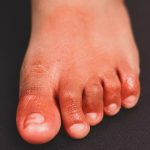Hundreds of people have died as record temperatures were reached in the US and Canada this week.
A “heat dome” over the US Northwest and western Canada’s British Columbia has caused temperatures to rise to more than 49C (120.2F) in a region not used to extreme heat.
Many of the excess deaths are presumed to be down to hyperthermia – when the body’s heat regulation system becomes overwhelmed by the heat, causing a person’s internal temperature to rise.
Sky News looks at the science behind how people can die from being too hot – and what to do in extreme heat.
Dehydration
One of the main causes of death from overheating is dehydration.
Professor Mike Tipton, from the University of Portsmouth, told Sky News: “The body’s defence against heat is to sweat, and with that, the blood thickens and the likelihood of it clotting rises.
“This particularly applies to the elderly, those over 75 are at particular risk of dying from dehydration because of their general vascular state and inclination to clotting.
“The more you sweat the more water your body loses so it is important to keep hydrated.”
Dehydration can also affect people’s cognitive ability, preventing the brain from sending signals to the rest of the body – something that famously happened to British triathlete Jonny Brownlee in Mexico in 2016 when his brother carried him over the finish line.
Skin temperature
Skin getting hot “puts great stress on the cardiovascular system”, Prof Tipton said.
“You’re more likely to have a heart attack as your cardiovascular system has to try harder to perfuse blood to your tissues than when it’s cool.”
Body temperature
There are various stages of heat illness (the least severe first): sunburn, fainting, exhaustion and heatstroke.
The body can usually maintain a constant temperature by balancing heat gain with heat loss but when the weather is very hot, heat gain overwhelms the body’s ability to lose heat and the body temperature rises.
Please use Chrome browser for a more accessible video player
“When you have heatstroke, the body gets so hot it starts to denature proteins so can’t regulate your body temperature and therefore major organs can fail,” Prof Tipton said.
“Normal body temperature is about 37C, anything above 40C, 41C you’re likely to get heatstroke – it’s a major medical issue.
“Babies are more susceptible to heatstroke because they have lots of surface area to absorb heat but not much mass to spread it around the body.”
How to prevent getting too hot during an extreme weather event
A lot of the advice is common sense – stay cool enough so you do not sweat, minimise exercise, sleep in cool rooms, drink cool drinks, fan and mist the body and wear as little and as light clothing as possible.
“Hand immersion in cool water is as good as anything else,” Prof Tipton added.
“And have a tepid shower – not too cold otherwise your skin shuts down and traps heat in the body.”






















